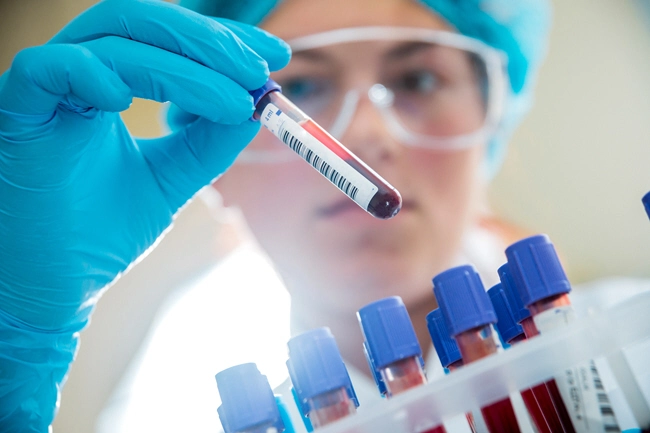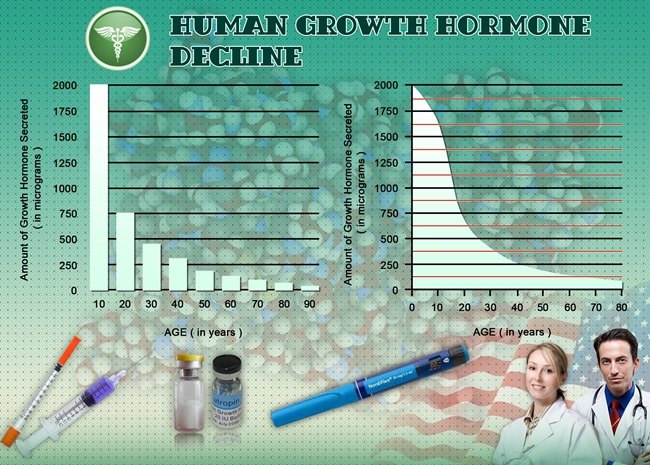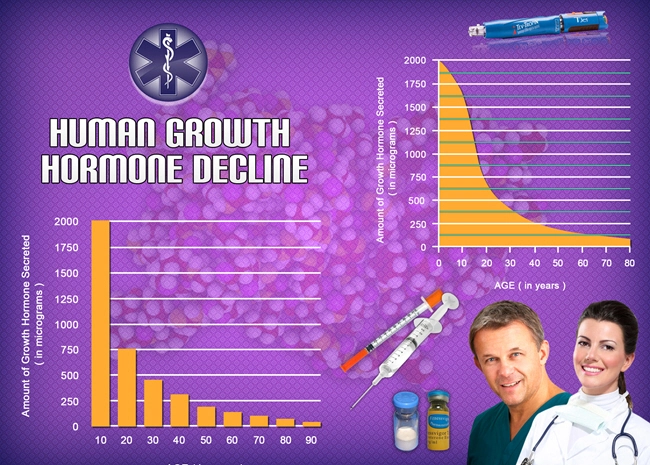
Introduction to Hypogonadism
Hypogonadism is a clinical condition characterized by the diminished production of testosterone and other sex hormones in males. This endocrine disorder can manifest through a variety of symptoms, including decreased libido, erectile dysfunction, fatigue, and loss of muscle mass. In the United States, hypogonadism affects a significant number of men, with prevalence increasing with age. Understanding the implications of this condition is crucial for managing its impact on overall health.
The Role of the Parathyroid Glands
The parathyroid glands, small endocrine glands located near or within the thyroid gland, play a vital role in regulating calcium and phosphate levels in the body. They secrete parathyroid hormone (PTH), which is essential for maintaining bone health, nerve function, and muscle contractions. Disorders of the parathyroid glands, such as hyperparathyroidism or hypoparathyroidism, can lead to significant health issues, including osteoporosis and kidney stones.
Interplay Between Hypogonadism and Parathyroid Function
Recent research has begun to explore the potential links between hypogonadism and parathyroid health. Testosterone, the primary male sex hormone, has been shown to influence bone metabolism and calcium homeostasis, both of which are regulated by PTH. Low levels of testosterone in men with hypogonadism may lead to alterations in PTH secretion and, consequently, affect bone density and mineral metabolism.
Studies have indicated that men with hypogonadism may have an increased risk of developing secondary hyperparathyroidism, a condition characterized by elevated PTH levels due to low calcium levels. This can exacerbate bone loss and increase the risk of fractures, a significant concern for aging American males. Conversely, the management of hypogonadism through testosterone replacement therapy may help stabilize PTH levels and improve bone health.
Clinical Implications and Management Strategies
The clinical management of hypogonadism in the context of parathyroid health requires a comprehensive approach. Regular monitoring of testosterone and PTH levels is essential for early detection and intervention. For men diagnosed with hypogonadism, testosterone replacement therapy may be considered, but it should be administered under close medical supervision to avoid potential side effects, such as worsening prostate conditions or cardiovascular risks.
In addition to hormone therapy, lifestyle modifications play a crucial role in managing both hypogonadism and parathyroid health. A balanced diet rich in calcium and vitamin D, regular physical activity, and maintaining a healthy body weight can help mitigate the risks associated with these conditions. For men with concurrent parathyroid disorders, surgical intervention or medication to regulate PTH levels may be necessary.
Future Research Directions
The relationship between hypogonadism and parathyroid health is an area of ongoing research. Future studies are needed to better understand the mechanisms underlying this connection and to develop targeted therapies that address both conditions simultaneously. Advances in genetic and molecular research may provide insights into personalized treatment approaches, offering hope for improved outcomes for American males affected by these disorders.
Conclusion
Hypogonadism and parathyroid health are intricately linked, with significant implications for the well-being of American males. By recognizing the potential interplay between these conditions, healthcare providers can develop more effective management strategies that address the multifaceted needs of their patients. As research continues to evolve, the medical community remains committed to enhancing the quality of life for men living with these challenging endocrine disorders.
Contact Us Today For A Free Consultation
Dear Patient,
Once you have completing the above contact form, for security purposes and confirmation, please confirm your information by calling us.
Please call now: 1-800-380-5339.
Welcoming You To Our Clinic, Professor Tom Henderson.

- Unveiling the Link Between Hypogonadism and Mental Health: A Comprehensive Guide for American Males [Last Updated On: February 24th, 2025] [Originally Added On: February 24th, 2025]
- Unveiling the Best Practices in Monitoring Hypogonadism: A Guide for American Males [Last Updated On: March 4th, 2025] [Originally Added On: March 4th, 2025]
- Hypogonadism and Sleep Disorders: A Bidirectional Impact on Men's Health [Last Updated On: March 5th, 2025] [Originally Added On: March 5th, 2025]
- Unveiling the Muscle Health Dilemma: The Role of Hypogonadism in American Males [Last Updated On: March 16th, 2025] [Originally Added On: March 16th, 2025]
- Navigating Hypogonadism in Men with Autoimmune Diseases: A Comprehensive Guide [Last Updated On: March 16th, 2025] [Originally Added On: March 16th, 2025]
- Unveiling the Link Between Hypogonadism and Impaired Wound Healing in American Males [Last Updated On: March 16th, 2025] [Originally Added On: March 16th, 2025]
- Unraveling the Connection Between Hypogonadism and Parathyroid Health in American Males [Last Updated On: March 16th, 2025] [Originally Added On: March 16th, 2025]
- Hypogonadism and Testosterone Therapy: Benefits, Risks, and Management for American Males [Last Updated On: March 17th, 2025] [Originally Added On: March 17th, 2025]
- Exercise as a Key Strategy in Managing Hypogonadism in American Males [Last Updated On: March 17th, 2025] [Originally Added On: March 17th, 2025]
- Hypogonadism's Impact on Liver Health: Diagnosis, Treatment, and Lifestyle Management [Last Updated On: March 18th, 2025] [Originally Added On: March 18th, 2025]
- Hypogonadism in American Males: Diagnosis, Treatment, and Medical Education Essentials [Last Updated On: March 19th, 2025] [Originally Added On: March 19th, 2025]
- Hypogonadism and Chronic Pain: Integrated Treatment Approaches for American Males [Last Updated On: March 19th, 2025] [Originally Added On: March 19th, 2025]
- Exploring Alternative Therapies for Hypogonadism: Benefits, Risks, and Options for American Men [Last Updated On: March 19th, 2025] [Originally Added On: March 19th, 2025]
- Hypogonadism and Thyroid Function: Interplay and Impact on Male Health [Last Updated On: March 19th, 2025] [Originally Added On: March 19th, 2025]
- Hypogonadism and Autoimmune Disorders: Insights and Management for American Males [Last Updated On: March 20th, 2025] [Originally Added On: March 20th, 2025]
- Ethical Challenges in Diagnosing and Treating Hypogonadism in American Males [Last Updated On: March 20th, 2025] [Originally Added On: March 20th, 2025]
- Hypogonadism's Impact on Prostate Health: Understanding and Managing Risks in American Males [Last Updated On: March 20th, 2025] [Originally Added On: March 20th, 2025]
- Hypogonadism Screening and Management Guidelines for American Males [Last Updated On: March 21st, 2025] [Originally Added On: March 21st, 2025]
- Hypogonadism's Impact on American Men: Physical, Mental, and Social Effects [Last Updated On: March 21st, 2025] [Originally Added On: March 21st, 2025]
- Hypogonadism and Cancer Risk: Understanding Links and Managing Health in American Males [Last Updated On: March 22nd, 2025] [Originally Added On: March 22nd, 2025]
- Medical Imaging's Crucial Role in Diagnosing Hypogonadism in American Males [Last Updated On: March 22nd, 2025] [Originally Added On: March 22nd, 2025]
- Hypogonadism's Impact on Muscle Health in American Males: Causes and Management [Last Updated On: March 23rd, 2025] [Originally Added On: March 23rd, 2025]
- Hypogonadism's Impact on Immune Function in American Males: Health and Therapeutic Insights [Last Updated On: March 23rd, 2025] [Originally Added On: March 23rd, 2025]
- Hypogonadism and Gastrointestinal Health: A Bidirectional Impact in American Males [Last Updated On: March 23rd, 2025] [Originally Added On: March 23rd, 2025]
- Hypogonadism's Impact on Bone Health: Treatments and Management Strategies [Last Updated On: March 23rd, 2025] [Originally Added On: March 23rd, 2025]
- Managing Hypogonadism and Kidney Disease in American Males: A Comprehensive Approach [Last Updated On: March 24th, 2025] [Originally Added On: March 24th, 2025]
- Innovations in Hypogonadism Treatment: From TRT to Personalized Medicine [Last Updated On: March 24th, 2025] [Originally Added On: March 24th, 2025]
- Preventing Hypogonadism in American Males: Strategies and Interventions [Last Updated On: March 24th, 2025] [Originally Added On: March 24th, 2025]
- Hypogonadism's Impact on Skin Health and Testosterone Replacement Therapy Benefits [Last Updated On: March 24th, 2025] [Originally Added On: March 24th, 2025]
- Hypogonadism and Blood Pressure: Understanding Impacts and Management Strategies [Last Updated On: March 24th, 2025] [Originally Added On: March 24th, 2025]
- Managing Hypogonadism: Comprehensive Medical Rehabilitation for American Males [Last Updated On: March 24th, 2025] [Originally Added On: March 24th, 2025]
- Hypogonadism and Headaches: Diagnosis, Treatment, and Management for American Males [Last Updated On: March 25th, 2025] [Originally Added On: March 25th, 2025]
- Monitoring Hypogonadism in Long-Term Care: Strategies and Challenges [Last Updated On: March 25th, 2025] [Originally Added On: March 25th, 2025]
- Hypogonadism in American Males: Impact on Joint Health and Treatment Options [Last Updated On: March 25th, 2025] [Originally Added On: March 25th, 2025]
- Managing Hypogonadism: The Crucial Role of Multidisciplinary Medical Teams [Last Updated On: March 25th, 2025] [Originally Added On: March 25th, 2025]
- Hypogonadism and Neurological Disorders in American Males: A Bidirectional Impact on Health [Last Updated On: March 25th, 2025] [Originally Added On: March 25th, 2025]
- Psychological Counseling Needs for American Males with Hypogonadism: A Comprehensive Approach [Last Updated On: March 25th, 2025] [Originally Added On: March 25th, 2025]
- Hypogonadism and Anemia in American Males: Diagnosis, Management, and Lifestyle Impact [Last Updated On: March 26th, 2025] [Originally Added On: March 26th, 2025]
- Hypogonadism's Impact on Dental Health: Causes, Symptoms, and Management Strategies [Last Updated On: March 26th, 2025] [Originally Added On: March 26th, 2025]
- Hypogonadism's Emotional Impact: Understanding and Managing Low Testosterone in American Men [Last Updated On: March 26th, 2025] [Originally Added On: March 26th, 2025]
- Understanding Hypogonadism: Symptoms, Diagnosis, and Treatment for American Men [Last Updated On: March 26th, 2025] [Originally Added On: March 26th, 2025]
- Hypogonadism and Cholesterol: A Critical Link Impacting Cardiovascular Health in American Males [Last Updated On: March 26th, 2025] [Originally Added On: March 26th, 2025]
- Medical Nutrition Therapy: A Promising Approach to Managing Hypogonadism in American Males [Last Updated On: March 26th, 2025] [Originally Added On: March 26th, 2025]
- Hypogonadism's Impact on Respiratory Health in American Males: Insights and Management [Last Updated On: March 26th, 2025] [Originally Added On: March 26th, 2025]
- Hypogonadism in American Males: Trends, Treatments, and Future Research Directions [Last Updated On: March 26th, 2025] [Originally Added On: March 26th, 2025]
- Hypogonadism and Hair Loss: Understanding Links and Treatment Options for American Males [Last Updated On: March 26th, 2025] [Originally Added On: March 26th, 2025]
- Hypogonadism and Hearing Loss: Exploring the Link and Implications for Treatment [Last Updated On: March 26th, 2025] [Originally Added On: March 26th, 2025]
- Hypogonadism in Transgender Men: Symptoms, Diagnosis, and Management Strategies [Last Updated On: March 26th, 2025] [Originally Added On: March 26th, 2025]
- Medical Technology's Role in Diagnosing Hypogonadism: Advances and Future Prospects [Last Updated On: March 26th, 2025] [Originally Added On: March 26th, 2025]
- Hypogonadism's Impact on Balance: Hormonal Links and Treatment Strategies [Last Updated On: March 27th, 2025] [Originally Added On: March 27th, 2025]
- Hypogonadism and Allergies: Exploring the Medical Link in American Males [Last Updated On: March 27th, 2025] [Originally Added On: March 27th, 2025]
- Hypogonadism's Impact on Eye Health: Diagnosis, Management, and Prevention Strategies [Last Updated On: March 27th, 2025] [Originally Added On: March 27th, 2025]
- Hypogonadism's Impact on Cognitive Health in American Men: Risks and Interventions [Last Updated On: March 28th, 2025] [Originally Added On: March 28th, 2025]
- Hypogonadism's Impact on Vision: Symptoms, Diagnosis, and Holistic Management in American Males [Last Updated On: March 29th, 2025] [Originally Added On: March 29th, 2025]
- Managing Hypogonadism-Related Fatigue: Therapies and Lifestyle Strategies for American Males [Last Updated On: March 29th, 2025] [Originally Added On: March 29th, 2025]
- Hypogonadism and GERD: Exploring Hormonal Links and Treatment Implications in American Males [Last Updated On: March 30th, 2025] [Originally Added On: March 30th, 2025]
- Managing Hypogonadism in Primary Care: Diagnosis, Treatment, and Monitoring Guidelines [Last Updated On: March 30th, 2025] [Originally Added On: March 30th, 2025]
- Hypogonadism's Impact on Urinary Health: Diagnosis, Management, and Monitoring Strategies [Last Updated On: March 30th, 2025] [Originally Added On: March 30th, 2025]
- Medical Social Workers: Vital Support for American Males with Hypogonadism [Last Updated On: March 31st, 2025] [Originally Added On: March 31st, 2025]
- Hypogonadism Linked to Accelerated Skin Aging in American Males: Study Insights [Last Updated On: April 3rd, 2025] [Originally Added On: April 3rd, 2025]
- Strategies to Enhance Adherence to Hypogonadism Treatment in American Males [Last Updated On: April 3rd, 2025] [Originally Added On: April 3rd, 2025]
- Hypogonadism's Impact on Peripheral Neuropathy in American Males: Diagnosis and Treatment [Last Updated On: April 4th, 2025] [Originally Added On: April 4th, 2025]
- Hypogonadism's Impact on Nail Health in American Males: Symptoms and Management [Last Updated On: April 6th, 2025] [Originally Added On: April 6th, 2025]
- Hypogonadism's Impact on Gallbladder Health in American Males: Emerging Links and Insights [Last Updated On: April 6th, 2025] [Originally Added On: April 6th, 2025]
- Hypogonadism's Impact on Wound Healing in American Males: Insights and Strategies [Last Updated On: April 9th, 2025] [Originally Added On: April 9th, 2025]
- Medical Devices Revolutionize Hypogonadism Treatment for American Men [Last Updated On: April 9th, 2025] [Originally Added On: April 9th, 2025]
- Hypogonadism in American Men: Recognition, Diagnosis, and Management Strategies [Last Updated On: April 9th, 2025] [Originally Added On: April 9th, 2025]
- Hypogonadism's Impact on Sinus Health: Testosterone's Role and Treatment Insights [Last Updated On: April 10th, 2025] [Originally Added On: April 10th, 2025]
- Hypogonadism Management in American Males with Chronic Illnesses: Diagnosis, Treatment, and Lifestyle [Last Updated On: April 11th, 2025] [Originally Added On: April 11th, 2025]
- Nurses' Crucial Role in Managing Hypogonadism in American Males [Last Updated On: April 11th, 2025] [Originally Added On: April 11th, 2025]
- Hypogonadism's Impact on Spleen Health in American Males: Emerging Links and Implications [Last Updated On: April 11th, 2025] [Originally Added On: April 11th, 2025]
- Hypogonadism's Impact on Ear Health: Understanding and Managing in American Males [Last Updated On: April 12th, 2025] [Originally Added On: April 12th, 2025]
- Medical Counseling: Essential for Effective Hypogonadism Management in American Males [Last Updated On: April 13th, 2025] [Originally Added On: April 13th, 2025]
- Hypogonadism's Impact on Lymphatic Function in American Males: Study Insights [Last Updated On: April 13th, 2025] [Originally Added On: April 13th, 2025]
- Hypogonadism and Adrenal Function: Impacts and Management for American Males [Last Updated On: April 15th, 2025] [Originally Added On: April 15th, 2025]
- Hypogonadism's Impact on Thymus Health and Treatment Options for American Males [Last Updated On: April 17th, 2025] [Originally Added On: April 17th, 2025]
- Navigating Hypogonadism and Autoimmune Diseases: A Guide for American Males [Last Updated On: April 18th, 2025] [Originally Added On: April 18th, 2025]
- Hypogonadism's Impact on Pancreatic Health: Diagnosis and Management Strategies for American Males [Last Updated On: April 18th, 2025] [Originally Added On: April 18th, 2025]









